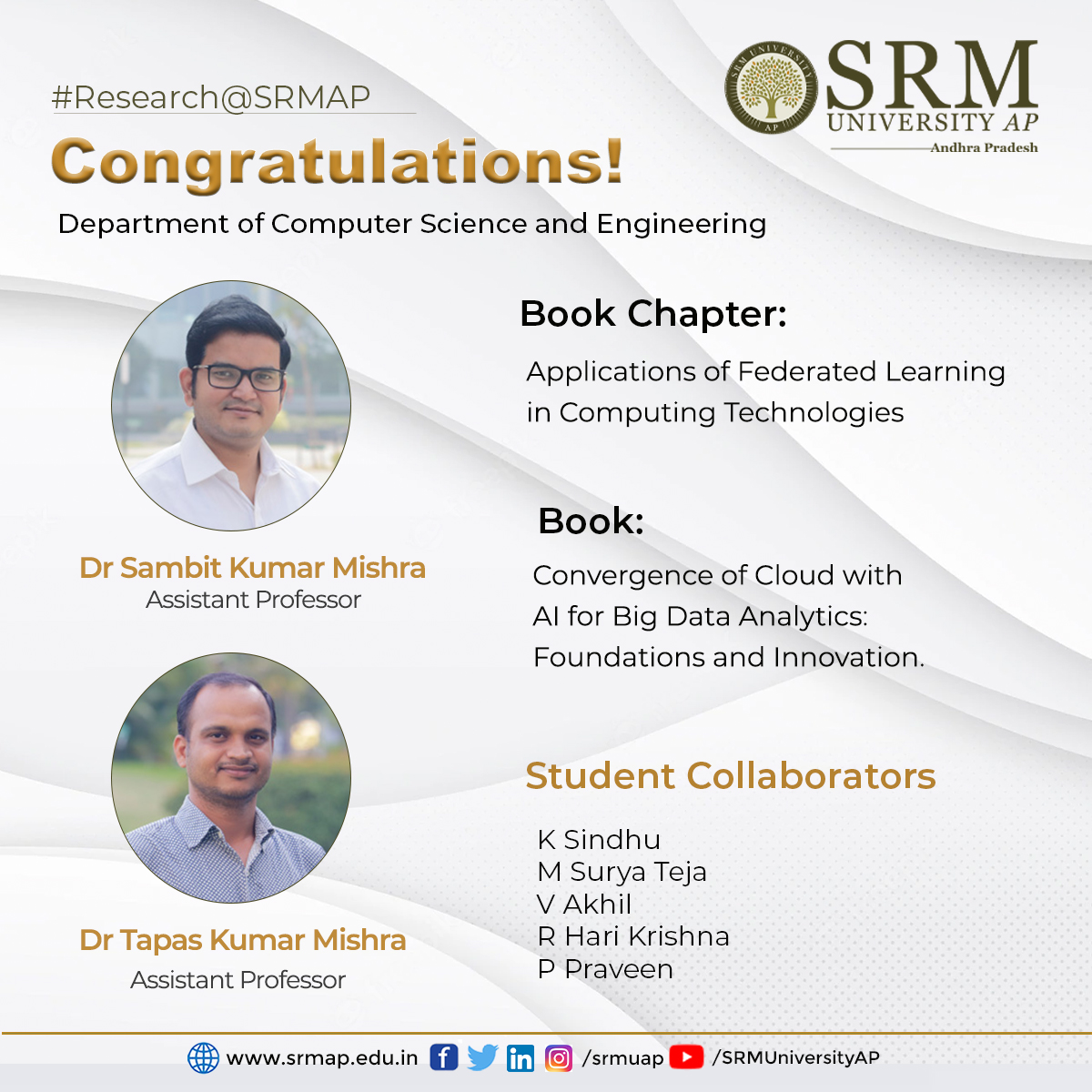
The Department of Computer Science and Engineering is delighted to announce that Assistant Professors, Dr Sambit Kumar Mishra and Dr Tapas Kumar Mishra, and the final year BTech students – Kotipalli Sindhu, Mogaparthi Surya Teja, Vutukuri Akhil, Ravella Hari Krishna, and Pakalapati Praveen – published a chapter titled Applications of Federated Learning in Computing Technologies in the scopus-indexed book titled Convergence of Cloud with AI for Big Data Analytics: Foundations and Innovation, a Wiley publication.
The book chapter describes the application of federated learning to various computing technologies. The federated learning concept is similar to the client-server model, where the client sends data to the server for processing and the processed data is again sent to the client. But, in federated learning, the clients are allowed separately to teach the deep neural network models with the local data combined with the deep neural network model at the central server.
Federated learning is a machine learning technique that trains the knowledge across different decentralized devices holding samples of information without exchanging them. The concept is additionally called collaborative learning. Researchers have used large frameworks for all the computations in the past years, and then they have moved to client-server frameworks.
It is also like a traditional centralised machine learning technique. All the local datasets are uploaded to a minimum of one server, so it assumes that local data samples are identically distributed. Because of its security and privacy concerns, it’s widely utilised in many applications like IoT, cloud computing; Edge computing, Vehicular edge computing, and many more. In the chapter, different applications of federated learning, their privacy concerns, and their definition in various fields of computing technologies like IoT, Edge Computing, Cloud Computing, Vehicular edge computing, etc. are presented. It will be of advantage to graduate students, researchers, academicians, institutions, and professionals that are interested in exploring the areas of intelligent computing systems.

